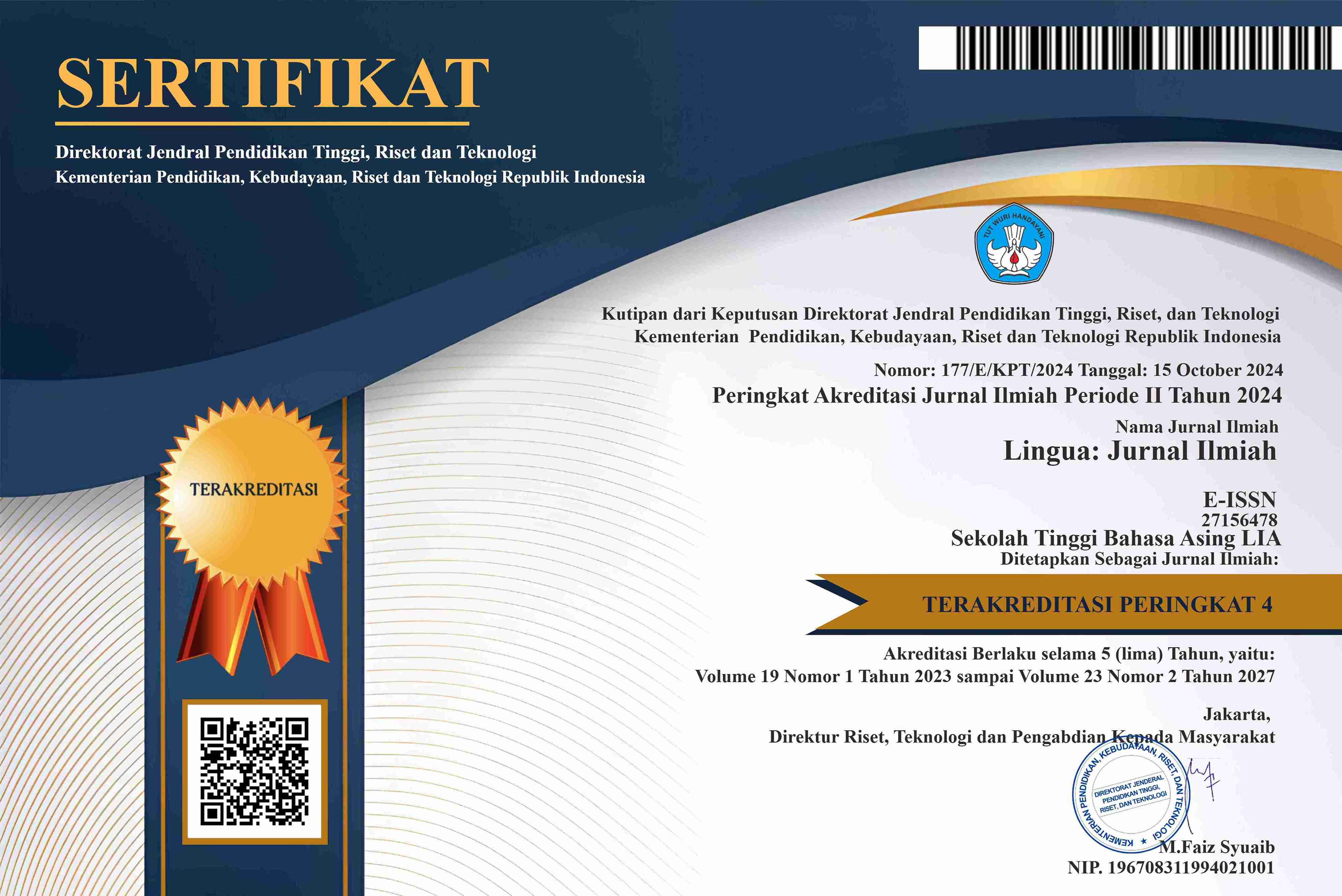KETIDAKEFEKTIFAN PEMAKAIAN KALIMAT DALAM BAHASA INDONESIA
Keywords:
ineffectiveness, characteristics of effective sentences, informationAbstract
This study aims to analyze the ineffectiveness of sentence usage in Indonesian based on the
characteristics of effective sentences: structural equivalence, parallelism, firmness of
meaning, economy of words, accuracy of reasoning, cohesiveness of ideas, and logicality
according to Arifin and Tasai's theory (2008: 97). The results of this study are an input to
the problem of sentence usage in Indonesian for agencies or interested parties. The
research method is descriptive qualitative. Data consisting of various information is
observed and documented. The sources of the research are banners and stickers installed
at various KRL stations in Jabodetabek. The research samples came from 5 banners, 3
stickers, and 1 press release. Before being analyzed, the research samples were made into
single sentences. From the analysis, 35 sentences were obtained. After the number was
reduced, 20 of them were ineffective. The results showed that 6 sentences were not
commensurate, 4 were not frugal, 4 were not careful, 3 were not parallel, 1 were not firm,
1 were not logical, and 1 were not coherent. Based on this, it was concluded that the
ineffective use of sentences in Indonesian was found in all the characteristics of effective
sentences, such as on the banners and stickers placed by PT KAI at stations in Jabodetabek.
Downloads
Published
How to Cite
Issue
Section
License
Copyright (c) 2024 Agus Wahyudin

This work is licensed under a Creative Commons Attribution-NonCommercial-NoDerivatives 4.0 International License.












